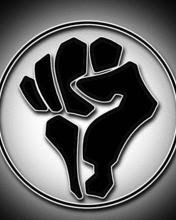“So with your experience with Rwandan literature and your being conversant with what happened to the country in 1994, do you think what happened to us earlier this year is over?” “No, not at all.”
This is a conversation between me and my African Literature lecturer in a discussion on tribalism and its effects on Africa, and particularly Kenya. Having been the major cause of the post election clashes, tribalism has for years been in our political, social and cultural framework, that at some level, and in bad taste, is being used to defend our folly as a Kenyan people.
The Making of a Nation is a documentary by Hillary Ng’weno, a Kenyan Professor, who gives a glimpse of how Kenya rose from the colonial ashes into a free republic, run by a government of the people by the people and for the people. Though noble in its intentions, the documentary inadvertently brings about the issue of tribalism in a way that depicts the vice as part and parcel of our very make up as Kenyans. Almost all actions that were of significance to our nation’s development were as a result of ethnicity and the need to identify oneself as a member of one ethnic community.
The differences in our tongue and geographic location should add to the cultural diversity that brings about the splendor of our country, but instead they will be our undoing. On a trip to the US, my lecturer was dumbfounded when out of a random conversation a cab driver asked her, “So you are from Kenya, which tribe are you?” of all the countries in Africa, only Kenya has a tribal reputation. A show of our cultural recognition you may say? I call it a tribal time bomb waiting to explode.
In Tanzania, friends stay for years without knowing each others’ ethnicity. In Uganda, never will you hear the question, “what tribe are you?” but in our beloved country, God forbid I take home a girl from another community. We do not have an identity as Kenyans; we do not have a plan to move away from the path set by our fathers, the path that leads to a great sense of loss, and the path that will definitely lead us to a place where no one of us wants to go.
In 1994, millions of Rwandese citizens and the world thought that the violence taking place was just a repetition of the violence that had been going on between the two dominating communities over the years. Ever since the Belgians showed favor to the Tutsis (because of their number, they were fewer than the majority Hutus), to the time the Belgians left the country to be led by its citizens (Hutus, since the Tutsis were now asking for independence during the wave of change in African states), both tribes had been clashing, killing each other and destroying property. No one expected the genocide of 1994. If I may take a bold step and compare the two countries, what the skirmishes that wreaked havoc late December 2007 through January 2008 is only a drop in the bloody ocean that was the 1994 Rwandan genocide. The previous skirmishes that Rwanda experienced were eerily similar to what we experienced; a grim premonition of where we might end up ceteris peribus (all factors remaining constant).
Kenyans are yet to find an identity as Kenyans without referring to our cultural backdrop. The problem is not that western culture has led to the degradation of our culture leading to a loss of identity, but the lack of realization, akin to ignorance, that makes us fail in accepting the fact that saving our already wasting culture does not include the ethically based nights and parties that we see, but upholding our values as a Kenyan people, regardless of what we wear, eat, drink or speak. I am not being African by dressing up in beads and open leather sandals or eating a certain type of food. We better lose this ignorant way of thinking and realize that if I do not love my neighbor or if I do not respect family, or uphold the values that allow me to coexist with my neighbor regardless of skin color or ethnic setting, then in no way am I African. If I cannot walk through the streets of Nairobi without someone wondering which tribe I am from by my simple mannerisms then we are not close to achieving an identity as Kenyans. Being Kenyan involves upholding values, knowing that inasmuch as western influence plagues us, it is just a part of change. In no way are we expected to still dress in skin cloths and speak in a restricting tongue that only allows communication between certain people. However, we are expected to uphold community life, and enable peaceful coexistence as one people. This way, we will have achieved an identity as a Kenyan people, an identity that enhances the spirit of our national motto: Peace, Love and Unity.
We need to break free from the shackles that bind us to our tribal identities. We need to realize that we are better than a country known for its ethnic divisions. The last country that was regarded for its tribal bounds saw one of the greatest losses in lives a country has ever seen in a non-war situation.
We have what we need, we have who we need. We have our intellect and values and we have us a people tired of killing each other and blaming it on cultural clashes, a people bent on eliminating ignorance and standing out to prove the world wrong. We are Kenya, yes we can.
Thursday, November 27, 2008
Subscribe to:
Post Comments (Atom)

No comments:
Post a Comment